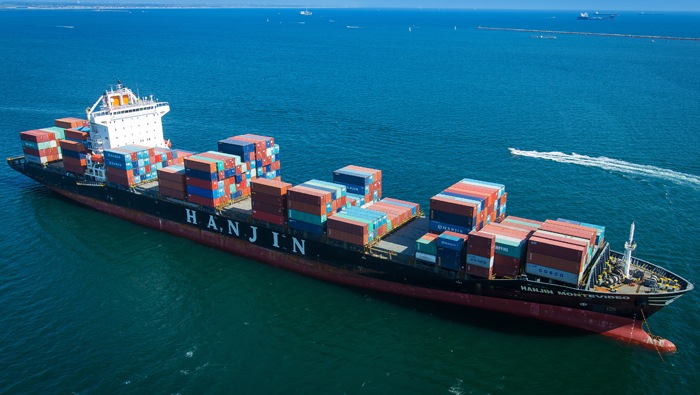
Seoul: South Korean court overseeing Hanjin Shipping’s receivership is considering a sale process for the entire container line, a month after the debt-laden company’s filing roiled supply chains worldwide.
The Seoul Central District Court has called for a meeting of officials who are evaluating the container line, Choi Ung-young, a judge and a spokesman for the court, said in an interview on Wednesday. The court thinks it’s important to start the process sooner rather than later, but the sale plan will depend on market conditions, he said.
The proposed sale of the entire company comes after an analyst said A.P. Moeller-Maersk’s container line could be interested in buying Hanjin Shipping and smaller rival Hyundai Merchant Marine, which is under creditor-led restructuring. The Seoul court had established a committee to evaluate Hanjin Shipping and the outcome is due in November, while the container company needs to submit its proposal for revival by December 23.
The court would prefer to have companies in the shipping industry take over Hanjin Shipping, rather than investment funds, to obtain the expertise necessary to help the troubled shipping line survive, Choi said.
Hanjin Shipping rose 7.1 per cent to 1,215 won in Seoul trading, giving it a market value of about 296 billion won ($270 million). The company was valued at about $1.2 billion a year earlier.
Both Hanjin and Hyundai Merchant are in need of a strong partner and Maersk Line, the world’s biggest container line, is probably the only rival with the financial muscle to manage a takeover, said David Kerstens, a transport analyst at Jefferies International in London.
Hyundai Merchant, South Korea’s second-largest sea container-shipping company, was said to be looking at buying some assets of Hanjin, people with direct knowledge of the matter said last week.
Korea Development Bank — Hyundai Merchant’s largest shareholder and the biggest lender to Hanjin — and the Seoul court have been pushing to find a solution to the troubles at Hanjin.
Slowing trade and a worldwide surplus of capacity have depressed freight rates and piled up losses at some container lines including Hanjin and Hyundai Merchant. The smaller Korean competitor, unlike Hanjin, managed to obtain financial help after meeting all requirements set by creditors. State-run Korea Development Bank became Hyundai Merchant’s biggest shareholder after swapping debt for equity.